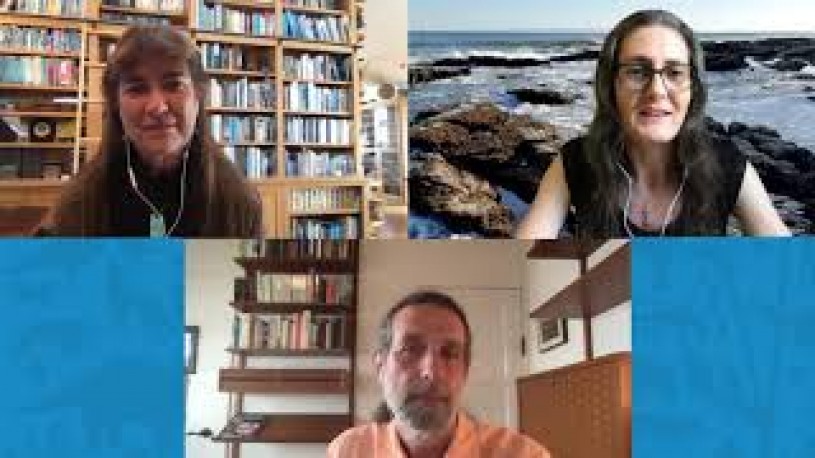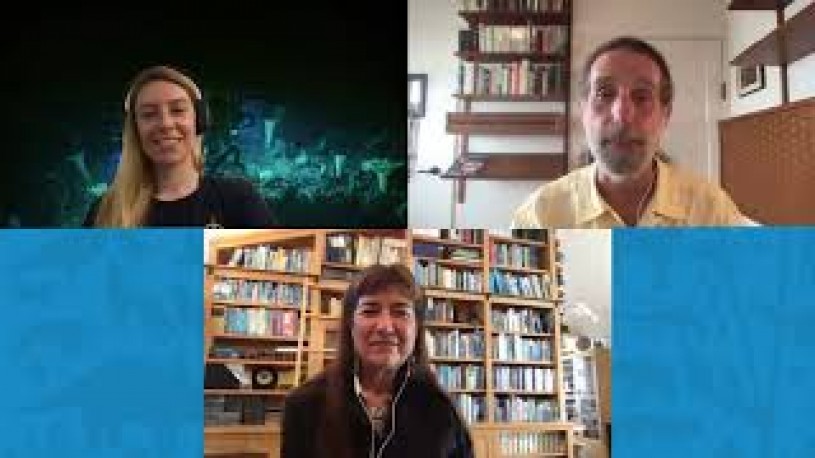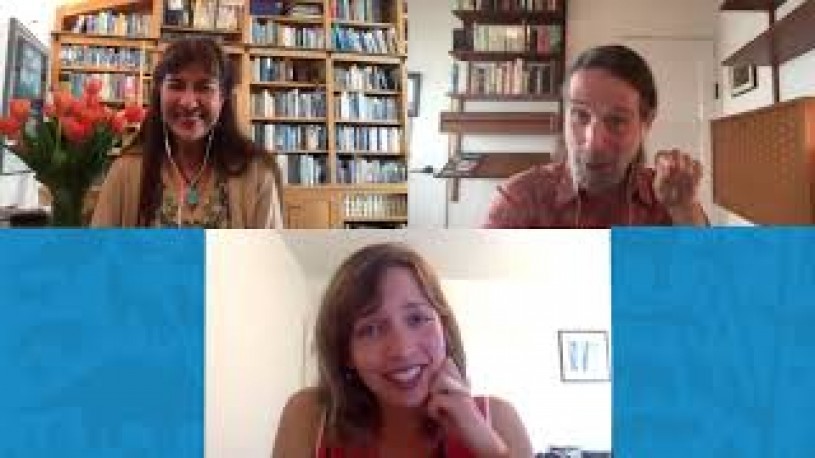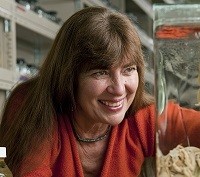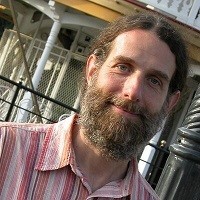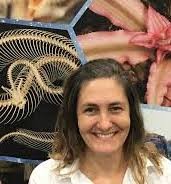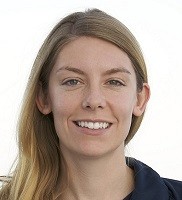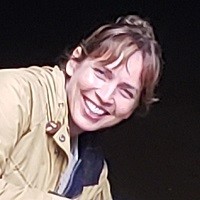Extended Specimen Lecture Series Videos
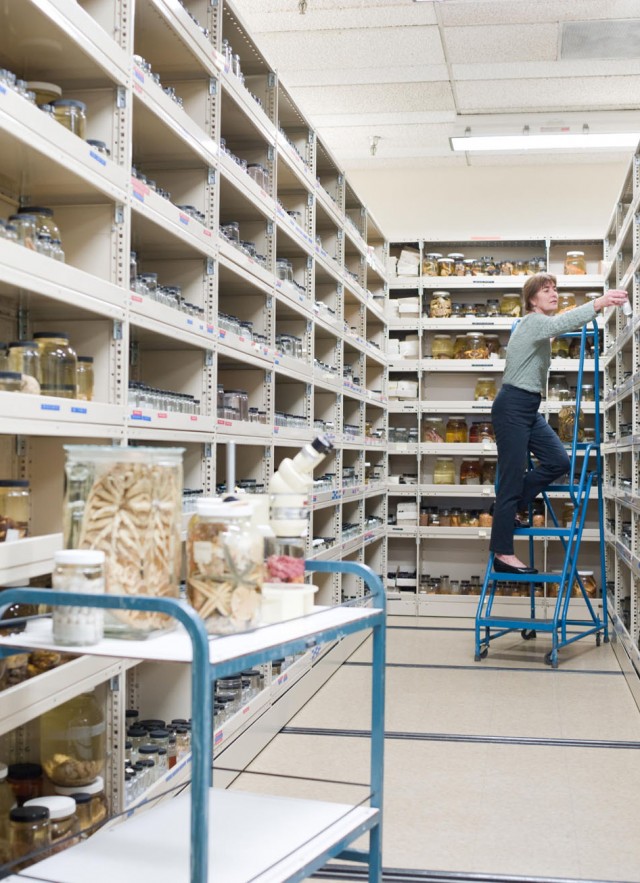
Natural history museums are built literally and figuratively around their collections. As we seek to make new discoveries using our over 35 million objects and specimens, questions often arise surrounding the environment in which they were collected. In a global effort to overcome these challenges and collaborate with peer institutions, there is a growing excitement around the idea of the "extended specimen network".
This three part lecture series explores how scientists and researchers are working to integrate contextual information, link it to specimens, and make it available to all. Each event our NHMLAC Research and Collections staff members, Dr. Regina Wetzer and Dean Pentcheff, will discuss the extended specimen concept with a guest speaker.
PART I: The Extended Specimen Network
Guest speaker Dr. Libby Ellwood
Each museum specimen holds a wold of possibilities. We can study them to unlock integrative answers about our past and present to predict our environmental future. If they are combined with all the knowledge we have about their unique histories, we are bound to advance discovery, learning, and public participation in specimen-based science.
Find out more about the groundbreaking potential of the "extended specimen network". By connecting the historical and environmental context of a single specimen with researchers, educators and the public, something as unassuming as a seastar in a jar can actually help answer big questions about changing climate.
PART II: Remote Participation in Ocean Exploration
Guest speaker Dr. Nicole Raineault
The world below our ocean's surface holds untold mysteries, yet they remain largely understudied due to the challenge and expense of underwater research. The Exploration Vessle Nautilus, of the Ocean Exploration Trust (OET), is pioneering the use of telepresense to invite a community of participants to join expeditions in real time.
Watch and learn how linking seafloor mapping, physical measurements, video, and still photography with sample and specimen collection, creates an unparalleled and integrated view of our ocean that is available electronically to everyone.
PART III: Biodiversity from Molecules - Environmental DNA
Guest speaker Dr. Rachel Meyer
To manager our coastal environment, we need to track changes in what lives there. For years, our studies have relied upon using laborious and costly sampling techniques like netting, dredging and diving to collect single specimens that would then need to be identified by highly trained taxonomists. Thankfully a new technology, environmental DNA (eDNA), enables researchers to use a sample of seawater to inventory entire marine communities by collecting and sequencing the DNA organisms shed into the water.
Learn how eDNA technology dramatically improves our ability to see how marine communities are responding to environmental change by using an expanded view of what constitutes a "specimen".
ABOUT THE SPEAKERS
Dr. Regina Wetzer
Dr. Wetzer is the Associate Curator and Director of the Marine Biodiversity Center. In high school Regina became fascinated with invertebrates — their bizarre forms and crazy life histories. She was introduced to marine field work in the Sea of Cortez as an undergraduate and fell in love with both invertebrates and exotic places. Her research focuses on molecular and morphological systematics of crustaceans. In 2016, Wetzer and her team launched the Diversity Initiative for the Southern California Ocean (DISCO). This research initiative is greatly enhancing biodiversity documentation in the marine environment by applying modern genetic technology, calling on the strength of existing museum expertise and collections, making new collections, and assessing and interpreting biodiversity with these new tools.
Dean Pentcheff
Dean is the Project Coordinator for NHM’s Diversity Initiative for the Southern California Ocean (DISCO). Prior to that, he was a co-founder and coordinator of NHM’s BioSCAN survey of urban-to-non-urban arthropod biodiversity. He has a background in bioinformatics related to taxonomy and specimen collections and, prior to that, research experience in marine biomechanics focusing on animal-fluid interactions.
Dr. Libby Ellwood
Dr. Ellwood is a Postdoctoral Fellow at the La Brea Tar Pits Museum. Her ecological research occurs at the intersection of climate change, conservation, and community science. She works to understand past systems while conducting contemporary research to see how these systems have changed and how they may continue to change in the future. This research depends on historical or paleontological information and natural history collections play a critical role in maintaining and providing these resources. In her current position as a Postdoctoral Fellow at La Brea Tar Pits she is part of "A mouse's eye view of Rancho La Brea" project to reconstruct paleo food webs. Specifically, she is developing educational resources to involve students in sorting microfossils that will inform us of the small mammals and plants that comprised ecosystems here 50-30,000 years ago. She also works with iDigBio, as Global Communications Manager, on initiatives to make biodiversity data discoverable and accessible.
Dr. Nicole Raineault
Dr. Raineault is the Chief Scientists and Vice President of Exploration and Science Operation for Ocean Exploration Trust. Nicole holds a Bachelors in marine science from the University of Maine, a Masters in oceanography from Rutgers University, and a Ph.D. in geological sciences from the University of Delaware. As a Ph.D. student she used emerging technologies to map and characterize the seafloor of oceans, lakes, and estuaries, and began working with the Ocean Exploration Trust as a member of the science team aboard Nautilus. As a postdoctoral fellow at the University of Rhode Island’s Graduate School of Oceanography, she helped build the “Scientist Ashore” network, and hosts a yearly discussion with this network to build the science program for the annual at-sea expedition. Nicole has participated in over 40 expeditions as the Chief Scientist for the Ocean Exploration Trust. She seeks to build scientific programs and partnerships to accelerate the rate at which discoveries are made from ROV collected video, data, and specimens.
Dr. Rachel Meyer
Dr. Meyer is Assistant Adjunct Professor at University of California Santa Cruz in Ecology and Evolutionary Biology and Director of the CALeDNA Community Science Program that was launched in 2017 by the UC Conservation Genomics Consortium. She is also part of the UCSC Paleogenomics Laboratory and the Genomics Institute. Rachel seeks to understand what shapes biodiversity variation through space and time, and how different species interact to shape each others' fates. This includes plants and people, where she uses genomics to explore plant domestication processes, and includes ancient and contemporary inventories of entire communities spanning the tree of life with environmental DNA sequencing. Through CALeDNA, she has worked with over 1000 volunteers and dozens of students and scientists from academia, museums, and land management on environmental DNA-based research projects from deserts to watersheds. On the side, she teaches biodiversity using cocktails and bitters.
Participating in this event series was a benefit of an NHMLAC Fellows Membership. For more information about Fellows Memberships, email us at fellows@nhm.org
